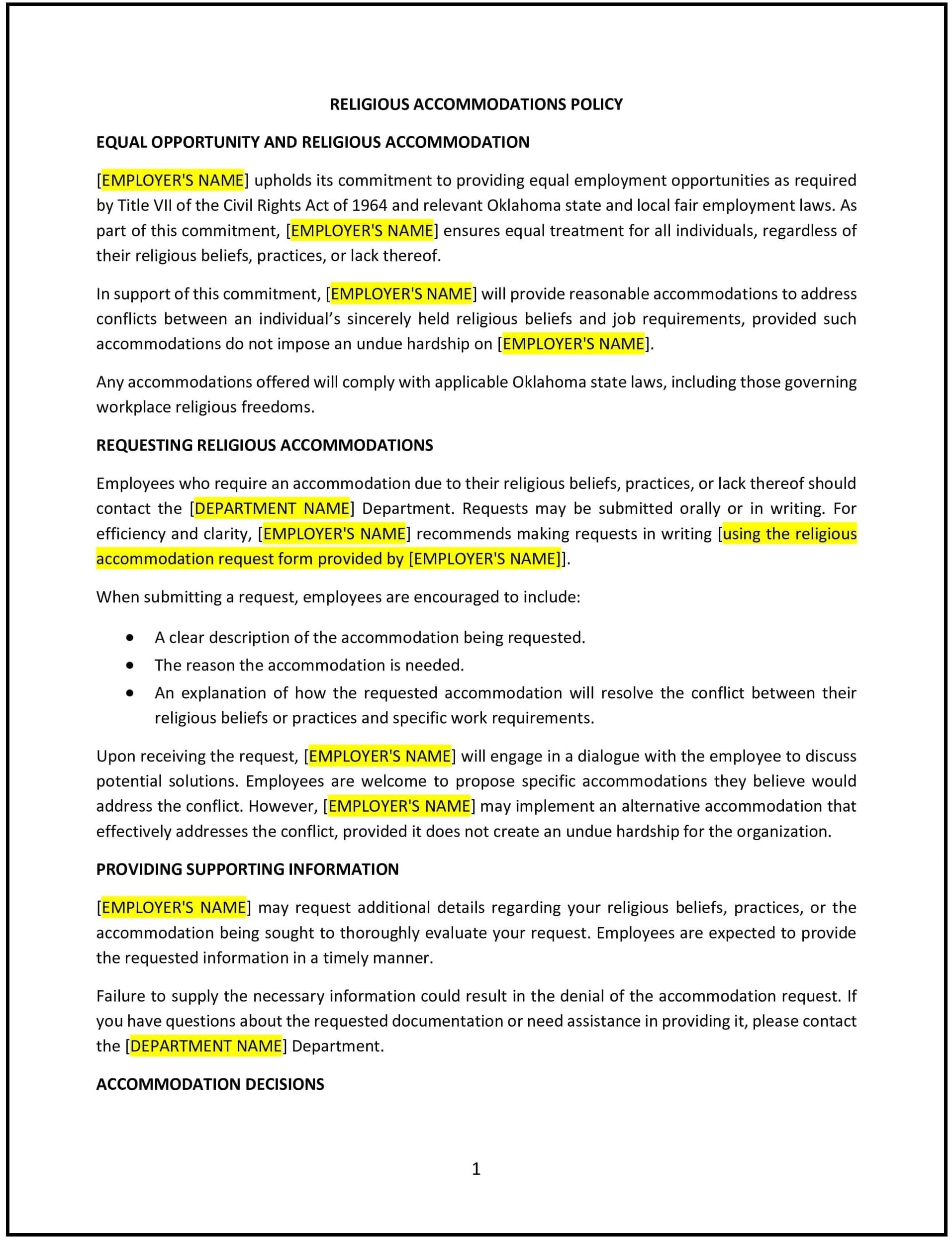Religious accommodations policy (Oklahoma): Free template
Got contracts to review? While you're here for policies, let Cobrief make contract review effortless—start your free review now.

Customize this template for free
Religious accommodations policy (Oklahoma)
This religious accommodations policy is designed to help Oklahoma businesses provide reasonable accommodations for employees’ religious beliefs and practices. The policy outlines the process for requesting accommodations, employer responsibilities, and guidelines for balancing business operations with religious needs.
By implementing this policy, businesses can foster inclusivity, minimize legal risks, and create a respectful work environment.
How to use this religious accommodations policy (Oklahoma)
- Define religious accommodations: Establish that employees may request adjustments to workplace policies, schedules, or dress codes for religious reasons.
- Outline the request process: Require employees to submit accommodation requests in writing to HR or their supervisor.
- Determine reasonable accommodations: Assess each request on a case-by-case basis, considering business needs and feasibility.
- Address scheduling adjustments: Allow for flexible scheduling, shift swaps, or time off for religious observances when possible.
- Provide dress and grooming accommodations: Permit religious attire, head coverings, or grooming practices unless they pose safety concerns.
- Ensure a discrimination-free workplace: Reinforce that employees cannot be treated unfairly for their religious beliefs or accommodation requests.
- Review regularly: Update the policy as needed to reflect best practices and changes in Oklahoma employment laws.
Benefits of using this religious accommodations policy (Oklahoma)
Implementing this policy provides several advantages for Oklahoma businesses:
- Supports workplace inclusivity: Encourages respect for diverse religious practices.
- Reduces legal risks: Helps businesses manage accommodation requests in compliance with federal and state laws.
- Enhances employee satisfaction: Promotes a culture of understanding and respect.
- Improves workforce flexibility: Allows businesses to accommodate religious needs without disrupting operations.
- Reflects Oklahoma-specific employment considerations: Aligns with local workplace culture and business needs.
Tips for using this religious accommodations policy (Oklahoma)
- Communicate clearly: Inform employees of their rights and responsibilities regarding religious accommodations.
- Handle requests fairly: Evaluate each accommodation request objectively and document all decisions.
- Maintain confidentiality: Protect employees' privacy when processing religious accommodation requests.
- Train managers and HR: Educate leadership on handling religious accommodations appropriately.
- Adjust as needed: Update policies based on changes in workplace needs and legal requirements.